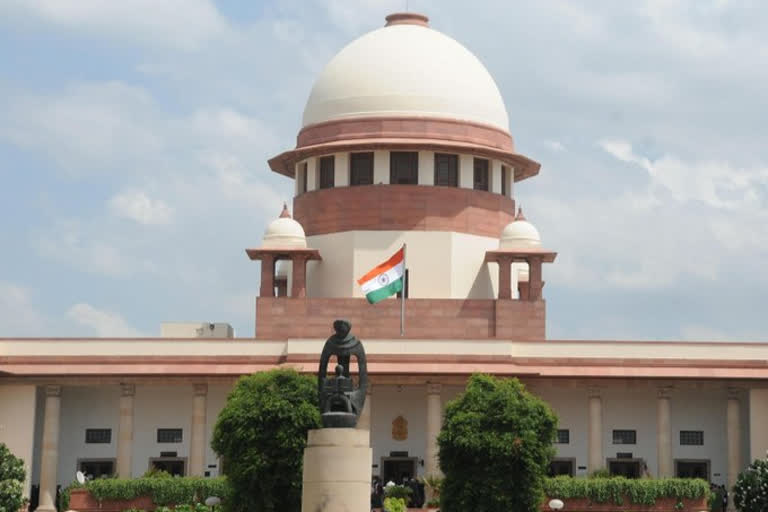New Delhi:The Supreme Court said that the experiences gained from the Emergency era are sobering lessons, which should warn against endowing a statute, susceptible to grave misuse.
The observation by the top court was made on the contentions of the Gujarat government that the pandemic has resulted in an internal disturbance. This was used to justify its notification to extract additional hours from workers without paying wages for the overtime.
The apex court has quashed this notification.
A bench comprising Justice DY Chandrachud and Justices Indu Malhotra and KM Joseph cited the emergency declared in 1962 and 1971 when India fought wars with China and Pakistan; and the Emergency in 1975, where the government declared that a "grave emergency exists whereby the security of India is threatened by 'internal disturbance'."
The 44th amendment to the Constitution sought to limit recourse to emergency powers under Article 352 to prevent their abuse.
Read:|Health emergency must be declared in Kerala: IMA
The bench said a proclamation of emergency now cannot be issued on a mere internal disturbance and must reach the threshold of an armed rebellion threatening the security of India.
Citing the bitter experience of the Emergency, the bench said that the experiences gained from the excesses of the emergency, experiences about the violation of human rights, is experiential learning, which establishes amalgam of uncontrolled power and unbridled discretion provide fertile conditions for the destruction of liberty.
"The sobering lessons learnt from our not-too-distant history should warn us against endowing a statute with similar terms of a content which is susceptible to grave misuse," said the bench.
The top court said that even if it were to accept the government's argument that the pandemic has resulted in an internal disturbance, yet the economic slowdown created by the COVID-19 pandemic does not qualify as an internal disturbance threatening the security of the state.
The bench noted that the pandemic has put a severe burden on existing, particularly public health, infrastructure and has led to a sharp decline in economic activities. "However, it has not affected the security of India, or of a part of its territory in a manner that disturbs the peace and integrity of the country. The economic hardships caused by COVID-19 certainly pose unprecedented challenges to governance. However, such challenges are to be resolved by the State Governments within the domain of their functioning under the law, in coordination with the Central Government," said the top court.
The Gujarat government had argued that the COVID-19 pandemic was leading to financial chaos and the situation was on "the brink of internal disturbance".
The government urged that the economic slowdown caused by the pandemic constitutes a public emergency, warranting the need to issue the impugned notifications curtailing the applicability of certain provisions of the Factories Act.
The notifications issued first in April and then in July, exempted the factories from some of the requirements under the Factories Act, which led to an increase in working hours from 9 to 12 and weekly hours from 48 to 72 without paying double the wages for overtime.
IANS report
Read:|Japan to extend emergency loan of Rs 3,500 cr for India to fight Covid-19 pandemic
